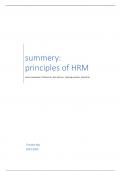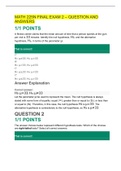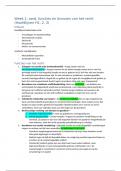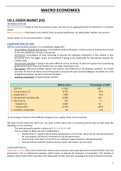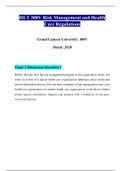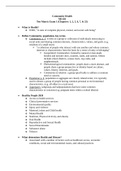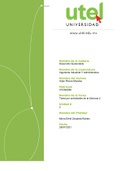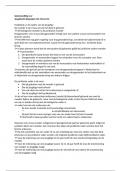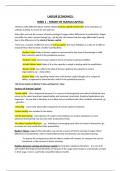Samenvatting
extensive summary of principles of HRM (18/20!!!)
- Vak
- Instelling
This summary is based on the syllabus as well as my class notes (I attented every class), cases and online study material on canvas. It also contains a few tips to study the material. Based on this summery I achieved a very good result on my first try.
[Meer zien]
